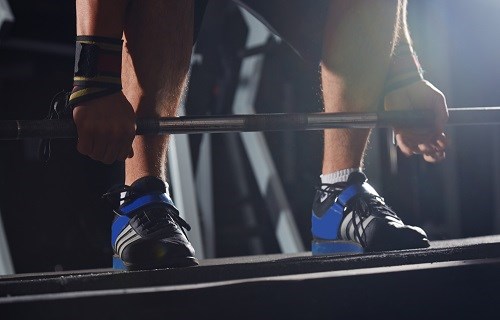The global fight against doping: Facing a breakthrough or a breakdown?
Recent years have featured some of the most ground-shaking revelations in anti-doping history. The IOC decision on Russian athletes’ participation in the Rio 2016 Olympics following revelations on state-supported doping, caused worldwide outrage and visible rifts in the international alliances in the fight against doping. The conspiracy of state actors and international sports leaders blackmailing athletics stars was another eye-opener.
Turning the spotlight on some of the many challenges facing the establishment of a globally efficient and credible anti-doping system, Play the Game 2017 introduces some of the most prominent voices within the field to discuss its current state and future developments with sessions mostly concentrated on Monday and Tuesday.
WADA and the future for anti-doping
The scandal involving state-sponsored doping of Russian athletes, highlighted the need for efficient and credible anti-doping measures. The decision not to ban Russian athletes from participating in the 2016 Rio Summer Olympic raised questions over the World Anti-Doping Agency’s (WADA) impact in a field that has become increasingly politicised. How can trust in doping control be restored and how does the future look for the international anti-doping system?
In the Opening session of the conference, Sir Craig Reedie, president of WADA and member of the International Olympic Committee (IOC) will give a keynote address and take questions on WADA’s efforts in the fight against doping in the backwash of the Russian doping scandal and explain how the agency is preparing itself to meet future challenges.
Later in the Opening Session a panel will bring some of the most outspoken voices together in a public debate. Travis Tygart, CEO of USADA, has become widely known not only from taking on American sports heroes like Marion Jones and Lance Armstrong, but also from being one of the most active voices demanding tough sanctions against Russia and WADA reform.
The panel will feature IOC member and former WADA president, Richard W. Pound, who in 2015 led the first WADA commission reporting on Russian doping.
Last, but not least, Silke Kassner will join the panel as co-founder of a brand new break-out organisation for athletes. Together with colleagues from the Athletes’ Committee in the German NOC, where she is the vice-chair, Kassner recently decided to form a fully independent athletes’ association. Moreover, she has solid knowledge of anti-doping through her function as vice-chair of the National Anti-Doping Agency of Germany.
At Play the Game 2015, German journalist, Hajo Seppelt told the story about the corrupt practices in Russian and international athletics. He was also the reporter behind a revealing TV documentary accusing the IAAF of blackmailing and cover-up of dopers. At this year’s conference, on Tuesday 28 November, Seppelt will question “The duplicitous agenda in global anti-doping”.
Another prominent figure in this context, CAS arbitrator, sports law scholar and former head of the WADA commissioned investigation into the Russian doping scandal, Richard H. McLaren will discuss the results of the Independent Investigations and lessons WADA should learn.
National Anti-Doping Organisations and doping policies
The role of the National Anti-Doping Organisations will also be debated when iNADO, the increasingly vocal umbrella organisation of National Anti-Doping Organisations, sets up their own session Wednesday 29 November. There will be proposals for further improvement of methods and strategies in the future anti-doping efforts.
Anti-doping policies will be further discussed at a symposium organised by LEGIT Project Consortium. At this session, a number of scholars will present their research on a series of issues related to the legitimacy of anti-doping policies as seen by the athletes.
In another symposium, a research group led by professor Andrea Petroczi presents evidence of doping prevalence and also discusses why the actual use of doping is so hard to determine.
Edited on 14 November to reflect the apology form USADA president Yuri Ganus.

Discover the programme and the continuously updated speakers list.
Sign up now and secure yourself four days densely packed with debates, discussions and networking between experts and professionals from sport, media and academia.
Read more and register






